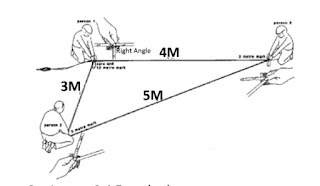Why pile caps are required in multi-storeyed building ?
Why pile caps are required in multi-storeyed buildings?
A foundation is described as 'piled' when its depth is more
than three times its breadth. Pile foundations are
principally used to transfer the loads from superstructures, through weak, compressible strata or water onto stronger, more compact, less compressible and
stiffer soil or rock at depth, increasing the effective size of a foundation and resisting horizontal loads. They are typically used for large structures, and in situations where the soil is not suitable to prevent excessive settlement.
A pile cap is a
thick concrete mat that rests on concrete or timber piles that have been driven into the soft or unstable ground to provide a suitable stable foundation. It usually forms part of the
foundation of a building, typically a multi-story building, structure or
support base for heavy equipment. Piles can be used individually, or they can be grouped
together and linked by a reinforced concrete cap. Pile caps create a
stable foundation and offer a larger area for the distribution of the building load onto the piles. They act in a similar way to piled raft foundations, where a concrete slab rests on soil which may be susceptible to movement, above a group
of piles.
The functions of a pile cap are:
1. To distribute a single load equally over the pile group and thus over a greater area of bearing potential,
2. To laterally stabilize individual piles thus increasing the overall stability of the group.
3. To provide the necessary combined resistance to stresses set up by the superstructure and/or ground movement.

Comments
Post a Comment